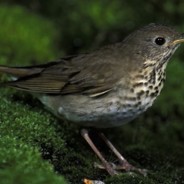Over the Wall of Self: A Found Poem by David Foster Wallace
After writing about This is Water by David Foster Wallace a couple weeks ago, I ended up listening to the beginning of a documentary, Endnotes, done by BBC. The opening, in Wallace’s own words, struck me as a kind of poem which I’m including here. These are words that could serve as inspiration for anyone who writes and reads— There’s something magical for me about literature and fiction and I think it can do things not only that pop culture can’t do, but that are urgent now. One is that by creating a character in a piece of fiction you can allow a reader to leap over the wall of self and to imagine himself being not just somewhere else but someone else. In a way that television and movies that no other form can do because people I think are essentially lonely and alone and frightened of being alone. I love his sense of urgency here. And his honesty—his vulnerability. And this image of leaping over the wall of self. A reason to read–and to write. His comments also dovetail well with research that has demonstrated a link between reading literary fiction and developing empathy and emotional intelligence. The BBC documentary, Endnotes is linked at YouTube...
read more




